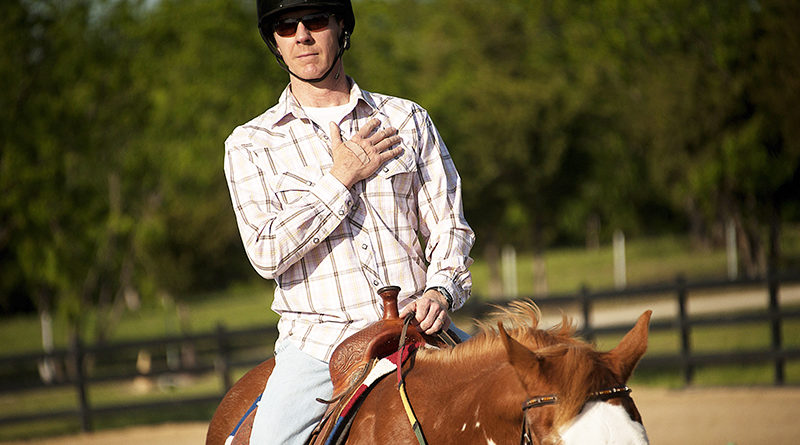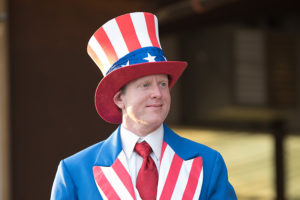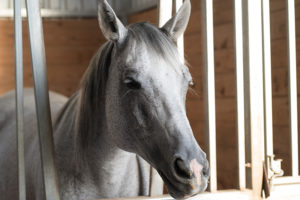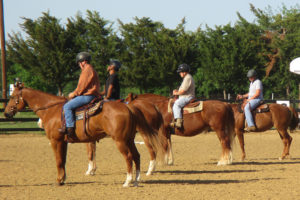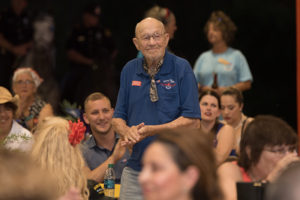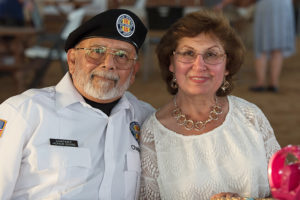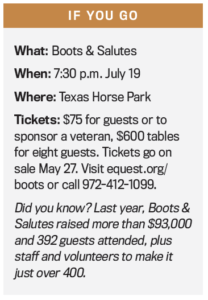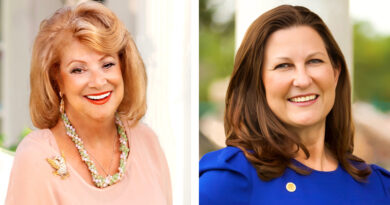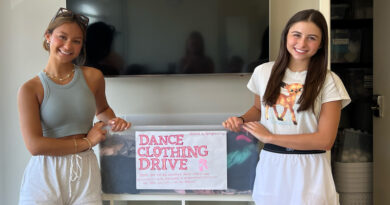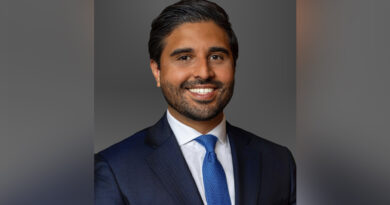Horse-based Therapy Helps Veterans Transition to Civilian Life
The statistics are real. More than 6,000 veterans have committed suicide each year, according to an eight-year analysis by the Veterans Administration.
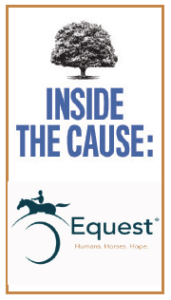
(ABOVE: Hooves for Heroes is an Equest program targeting military veterans and their families with the likes of mental-health counseling and therapeutic horsemanship. Courtesy photos)
Since 2012, Equest’s Hooves for Heroes program has looked to combat that statistic by empowering veterans and military families to take charge of their civilian transitions and assume new roles as civic leaders.
At the head of the program is Susannah Denney.
The 38-year-old nonprofit Equest has traditionally served adults and children with cognitive and emotional disabilities and began talking in 2005 about the potential for developing a veterans’ program.
Denney, who grew up with horses, worked with Cirque de Soleil, and has a long lineage of family members who had served in every conflict since the American revolution, said she felt called to work with veterans and their families after losing a loved one in Iraq.
“I was at Cirque, and I couldn’t recover. It was a challenge, and so I went, ‘How do I survive this?’ and it was service,” she said. “And it was a real struggle because there weren’t services readily available to help us, the surviving people. I knew this is what I wanted to do.”
When Denney was hired in July 2012, she made it her business to learn what was working – or not working. That first year, the Hooves for Heroes program had seven clients.
Last year, the nonprofit served 325.
“We have been able to evolve the program to meet the needs of veterans in the area,” she said.
Always free for the veterans, Hooves for Heroes both connects members to outside agencies that help reconnect them to civilian life and its therapeutic horsemanship program. The program ranges in activities that improve self-awareness to fellowship and camaraderie.
Horsemanship 101, for example, allows participants to be a part of the heard by spending an afternoon learning the basics of ground handling and insightful team building activities.
Other programs include a partnership with a licensed mental health professional and a horse to help veterans work toward their goals; carriage driving; therapeutic riding; and hippotherapy, a unique form of physical, occupational, and speech therapy using the movement of the horse to accomplish treatment goals.
Over the years, Denney said the program has evolved from being heavily counseling-centric to more about therapy with the horse. Sometimes the veterans don’t want to talk and share – and that is OK.
“One thing that has never changed from the beginning to now is this grooming moment, this 20-minute moment,” she said. “They take a minute, they get connected, stay connected, and they come back out of it. It’s this really beautiful thing to watch. It’s just this moment of true communion between the participant and the horse.
“It’s that authentic desire to connect without pretense.”

